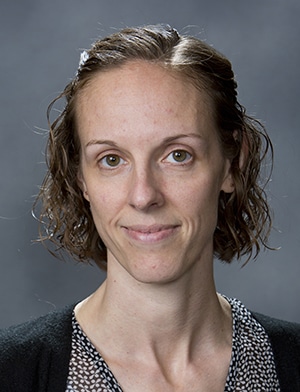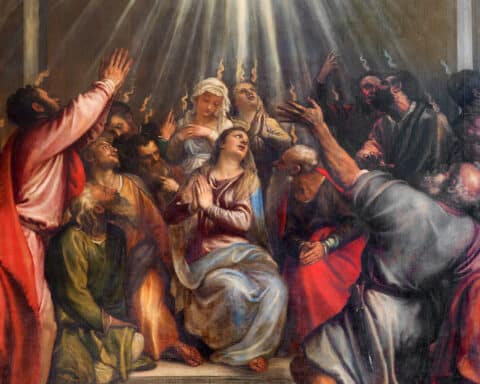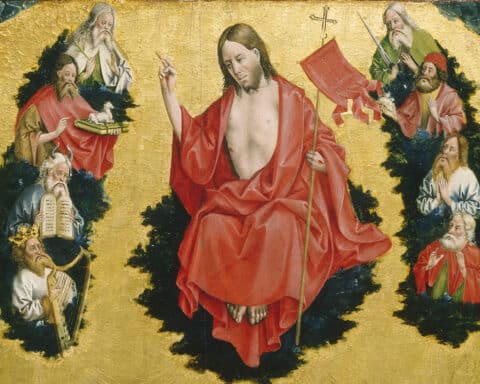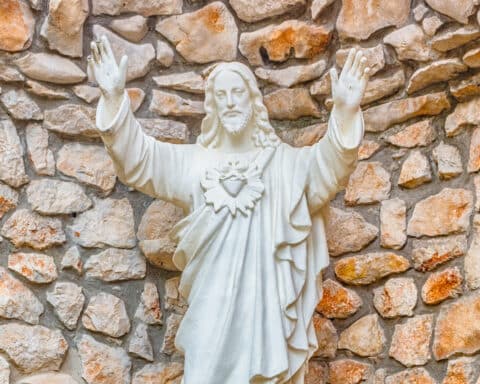
We hear about this kingdom, fully constituted, in the Book of Revelation. And, in hearing about it, we might just discover we long to be there, and even set our hopes on it.
“Behold, God’s dwelling is with the human race. He will dwell with them and they will be his people and God himself will always be with them as their God. He will wipe every tear from their eyes, and there shall be no more death or mourning, wailing or pain” (Rv 21:3-4).
Wow. Yes. I desire to be a citizen of this kingdom — a place where God himself will be with us. Indeed, a place where God himself will wipe every tear from our eyes! Yes, I long to be there.
| May 15 – Fifth Sunday of Easter |
|---|
|
Acts 14:21-27 |
And, joy of joys, the Book of Revelation also seems to suggest that we are, somehow, already there! This passage not only proclaims that God “will dwell” and “will be with us,” it also declares that “God’s dwelling is with the human race.”
Friends, it is both! God is and it will be. We both await the coming of the Kingdom of God in its fullness and dwell with God now as members of his Church, experiencing his merciful compassion. The magisterial document Gaudium et Spes affirms the reality of this kingdom within the Church here and now: “On this earth that kingdom is already present in mystery” (No. 39).
Put differently, the Church is God’s work of merciful compassion, joined as we were to Christ in his death, and so joined to him even today. “The innermost nature of the Church … thanks to her relationship with Christ, [is as] a sacramental sign and an instrument of intimate union with God, and of the unity of the whole human race” (Gaudium et Spes, No. 42). The Kingdom present in mystery! The Church orients us and carries us toward the Kingdom in which God himself will wipe every tear from our eyes.
To be a sign and the presence of the Kingdom in mystery dignifies history with the work of revelation and transformation. In the first reading, we see the apostles working to build up the Church by preaching the Gospel. They “proclaimed the good news” to Lystra and Iconium and Antioch, to Pisidia and Pamphylia, at Perga and in Attalia. They “called the church together” and “commended them to the Lord” so they might become a sign of his presence.
The Church could then “say with the Apostle: The Son of God ‘loved me and gave Himself up for me’ (Gal 2:20). By suffering for us, he not only provided us with an example for our imitation, He blazed a trail, and if we follow it, life and death are made holy and take on a new meaning” (Gaudium et Spes, No. 22). “Behold, I make all things new.”
Today, the Church continues to be made new by carrying out the work of merciful compassion that she is. We are transformed by living according to Christ’s law of love: “I give you a new commandment: love one another. As I have loved you, so you also should love one another” (Jn 13:34).
Just as Paul and Barnabas went out to preach the Gospel, we ought to live as apostles of this new commandment. Living signs of Christ’s love in the world, hoping for the Kingdom to come.
Catherine Cavadini, Ph.D., is the assistant chair of the Department of Theology and director of the master’s in theology program at the University of Notre Dame.





